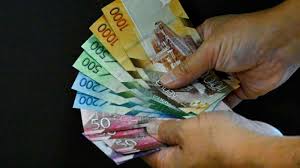Kenya has signed a five year deal with a German company to print new bank notes and replace the old ones. The deal is valued at Sh14.2 billion ($109,422,740) and was awarded to Giesecke+Devrient Currency Technologies GmbH (G+D), a German security printing firm.
The Kenyan Central bank Governor, Kamau Thugge said the deal was done to address the possible stock-out of the old currency notes. He noted that technical and financial capabilities of the German firm informed the decision to sign the deal.
Speaking further, Thugge argued that the printing of new currency is a very sensitive process that requires top firms with proven track records of professionalism.
Thugge’s explanation is coming on the back of criticisms generated by the deal. Since the deal was signed, many Kenyans have raised concerns about transparency and lack of public disclosure. In addition, they accuse the government of cover up due to the secrecy associated with the deal.
- Advertisement -
In the past, currency printing deals have also generated public outcry with British Firm De La Rue accused of making huge profit from the deal. As a result, it was suspended last year leading to a new agreement with the German firm.
The deal has also generated also led to questions about lack of openness within President William Ruto’s government. However, the Central bank of Kenya has maintained that the deal was kept a secret to ensure the integrity of the money printing process. In addition, the bank noted that it wanted to protect the security of country’s financial system.
Since the deal was signed, the Central bank has been trying to address the questions of secrecy and corruption. This led to the invitation of the Governor by the Kenyan parliament. Responding to questions from the lawmakers, Thugge said the deal went through due process.
According to him, it was scrutinised and approved by the National Security Council headed by Ruto himself.
This new deal will see the printing of Kenyan currency notes with 1,000 shilling bills issued first. Also, the old notes will be phased out gradually and will be in circulation alongside the new one.
- Advertisement -
The new deal will cover the printing of 50,100,200,500 and 1,000 shilling notes. It comes as Kenya reels from a huge debt crisis, soaring inflation and reintroduction of scrapped tax measures by the government.









